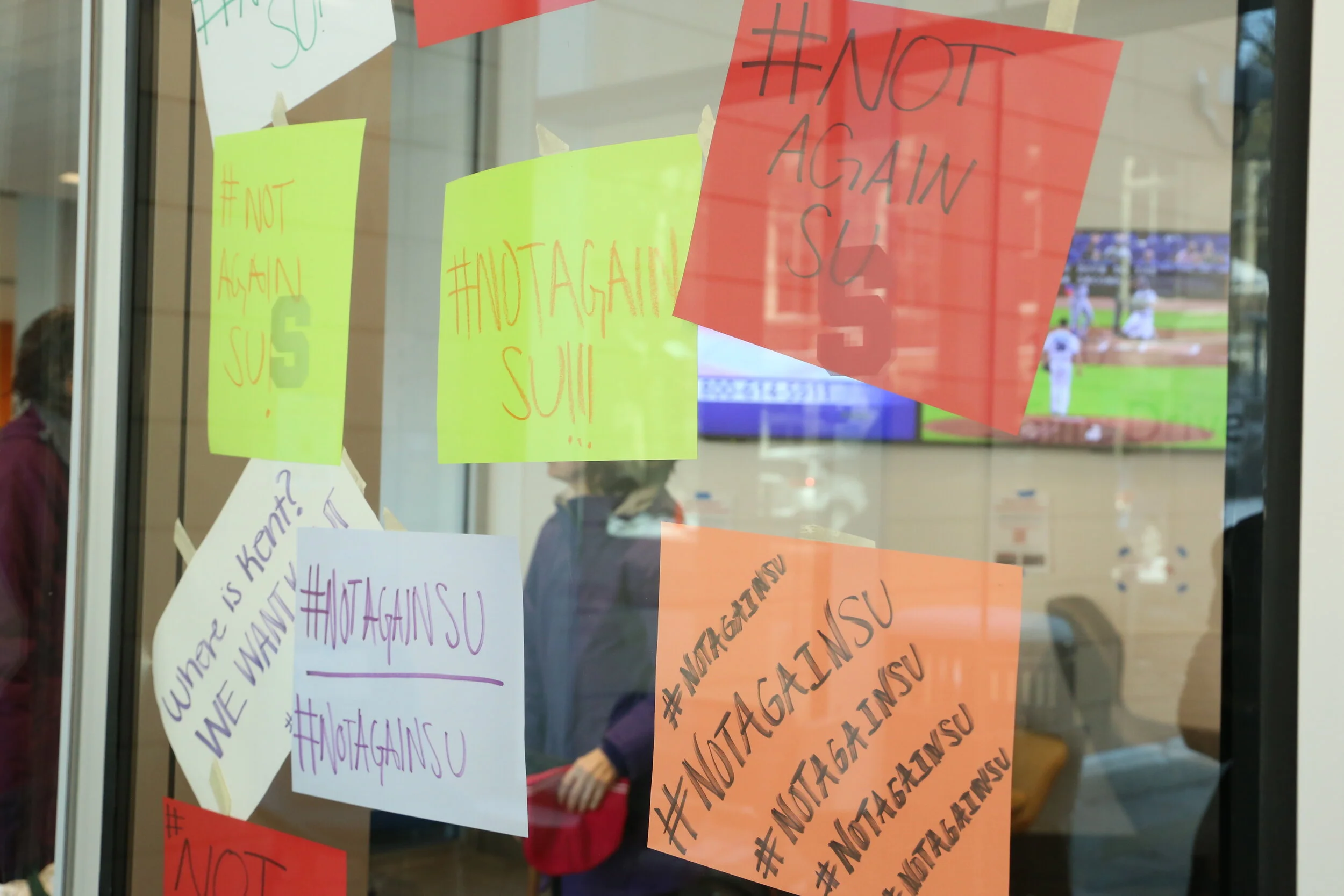Fellow White People: I STILL CAN’T HEAR YOU.
photo by jessica tran
This week, I watched countless Black students brought to tears, relive traumatic incidents in front of people who will never understand what they’ve been through. I watched them desperately try to inspire even a shred of empathy from administrators who responded with their hands on their hips and a quiet air of exasperation. I watched it all go down in rooms where I was one of ten white people… then one of thirty… then (in an astonishing turn of events) one of fifty.
Considering more than half of Syracuse University’s 15,226 undergraduate students are white, these numbers are abysmal. Considering how much we could do if white people were actually willing to use their privilege, the lack of representation becomes even more frustrating.
Throughout these past several days, I’ve been offered a glimpse into a world that I was admittedly ignorant to. One young Black woman at the RHA open forum shared a story about a professor calling the police on her for studying in the Hall of Languages. Another broke down into tears as she described how the university asked her to come up with curriculum for SEM100, only to replace her ideas with their lukewarm alternative. Yet another spoke out about the time a classmate told her to “Go back to picking cotton.”
Hearing the various ways in which racism has manifested in my own school was disturbing to say the least. But at the same time, based on my own experiences my freshman year, I can’t say I’m entirely surprised. I remember how my Black friend was told to “Go back to the plantation,” by a boy who claimed it was just an offhand comment. I also remember the other white people on the floor who told me and my friends that we were wrong for reporting this behavior. The people who likened the comments to middle school drama that didn’t warrant any real consequences.
Logan Smith, one of my white floormates at the time, also remembers how those non-POC reacted two years ago. “They thought that we were overreacting and that was very much what they told us,” Smith said. “[But] it wouldn’t have mattered half as much if we didn’t also step forward.”
To be clear, as white students, we absolutely do not understand the experiences of our Black counterparts and we never will. We will never be able to fully comprehend their anger, their fear, their frustration. Don’t say you understand because you don’t. Instead, realize the power that you possess. The kind that is absolutely essential if we really want to draw attention to the people Syracuse University is so intent on ignoring.
To non-POC who don’t understand why this issue is so emotional, show up to the conversation and listen for once. To those who want to help but don’t know how, ask the people who have been directly affected about what they need and how you can support.
Angie Gonzalez, one of the peaceful protesters at the Barnes Center sit in, says that there is a way for white students to show their support as allies without overstepping. “Just asking questions in an appropriate manner to learn-- listening instead of speaking-- is really effective,” said Gonzalez. I think that a lot of ignorance comes from [non-POC] not knowing and not asking, just assuming.”
Feryal Nawaz, another person at the sit-in, agrees, saying that non-POC need to do more to support the people directly affected by #notagainsu without pretending to have all the answers. “White people have privilege and power— they should be creating spaces for people of color and Black people to speak in, but also not use their white savior complex to speak for them or over them,” said Nawaz.
When we, as white students, remain silent, we are remaining complicit. We send a message that violent hate crimes and issues of discrimination are not actually relevant to us, because we are not the ones directly affected. I’m tired of seeing a campus that posts more about Syracuse’s status as the “No. 1 Party School” than they do about actual movements that require our help. I’m tired of white people only showing their support when it makes them look good. I’m tired of being told that it’s overdramatic to take action against blatant acts of racism. Mostly, I’m tired of the silence.
Another sit-in participant, Vicky Vega, says that raising awareness and calling racism out is a good place for white students to start. “You have to hold your friends accountable,” said Vega. “Saying racial slurs, even not in front of people of [that specific] group, is still wrong.”
Correct your friends. Show up to the conversation. Raise awareness. Listen to BIPOC when they say that something is wrong. Support them. Raise money. Increase awareness. Utilize your platform.
Speak up and speak LOUDER, because I Still. Can’t. Hear. You.
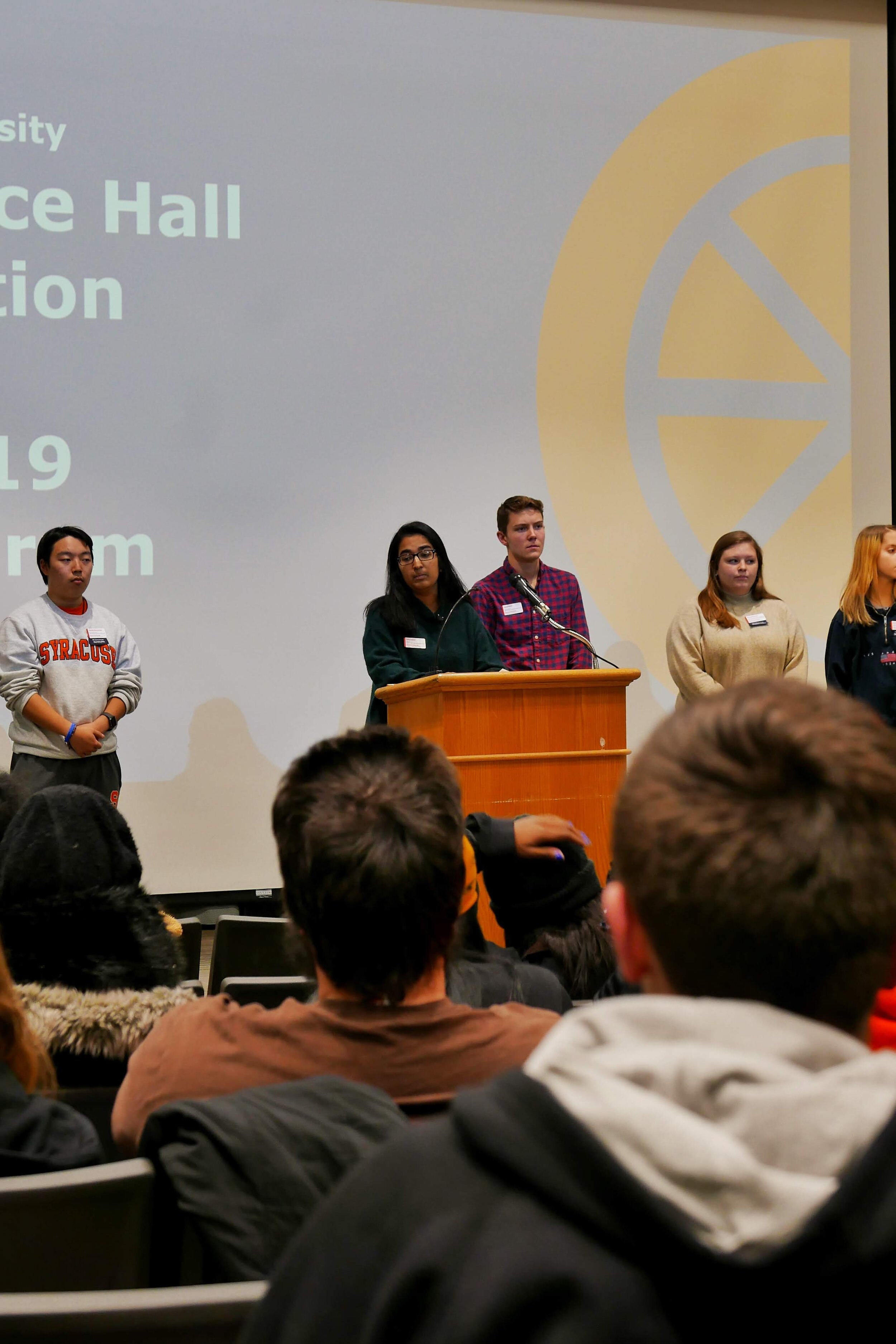
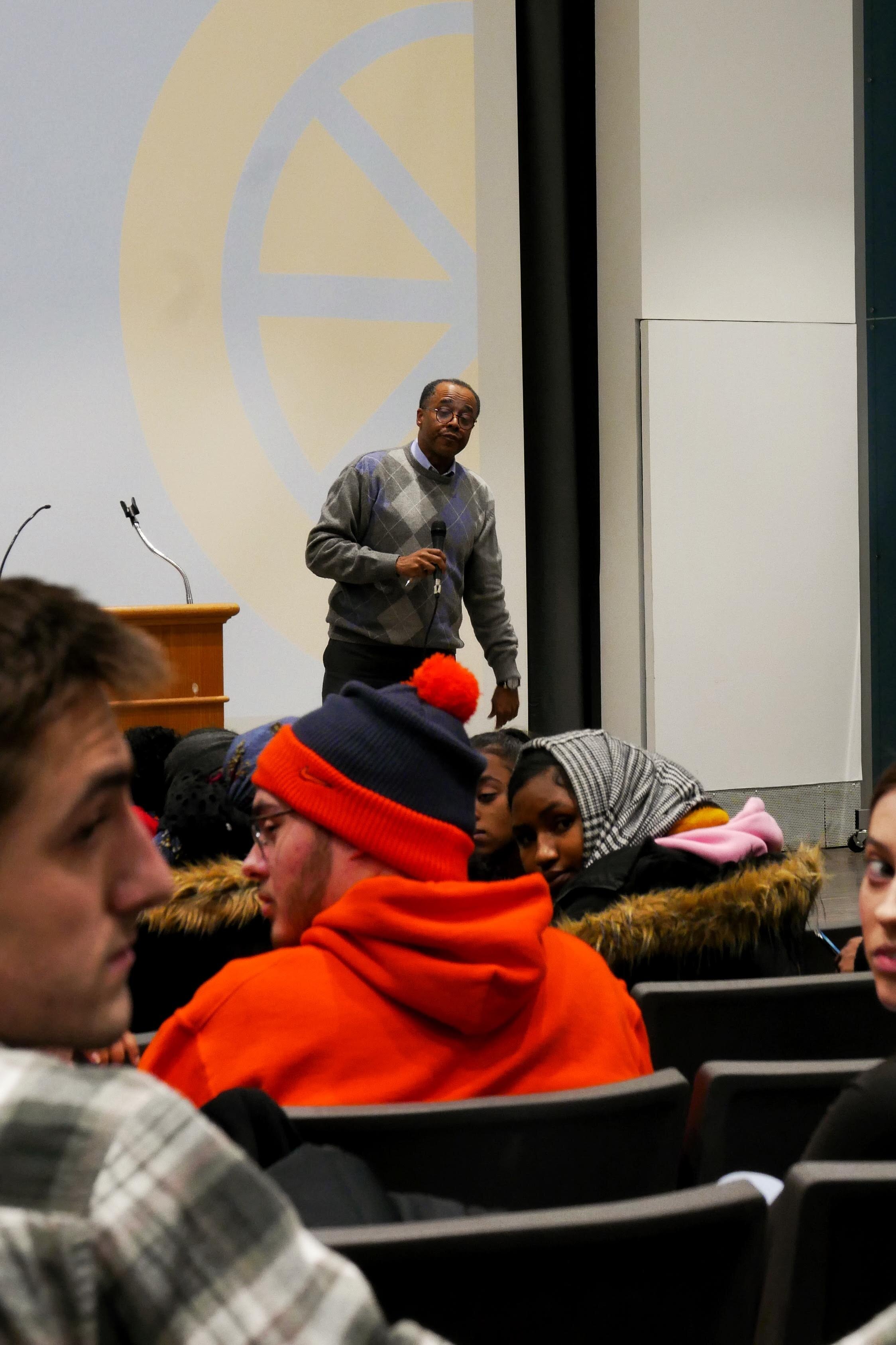
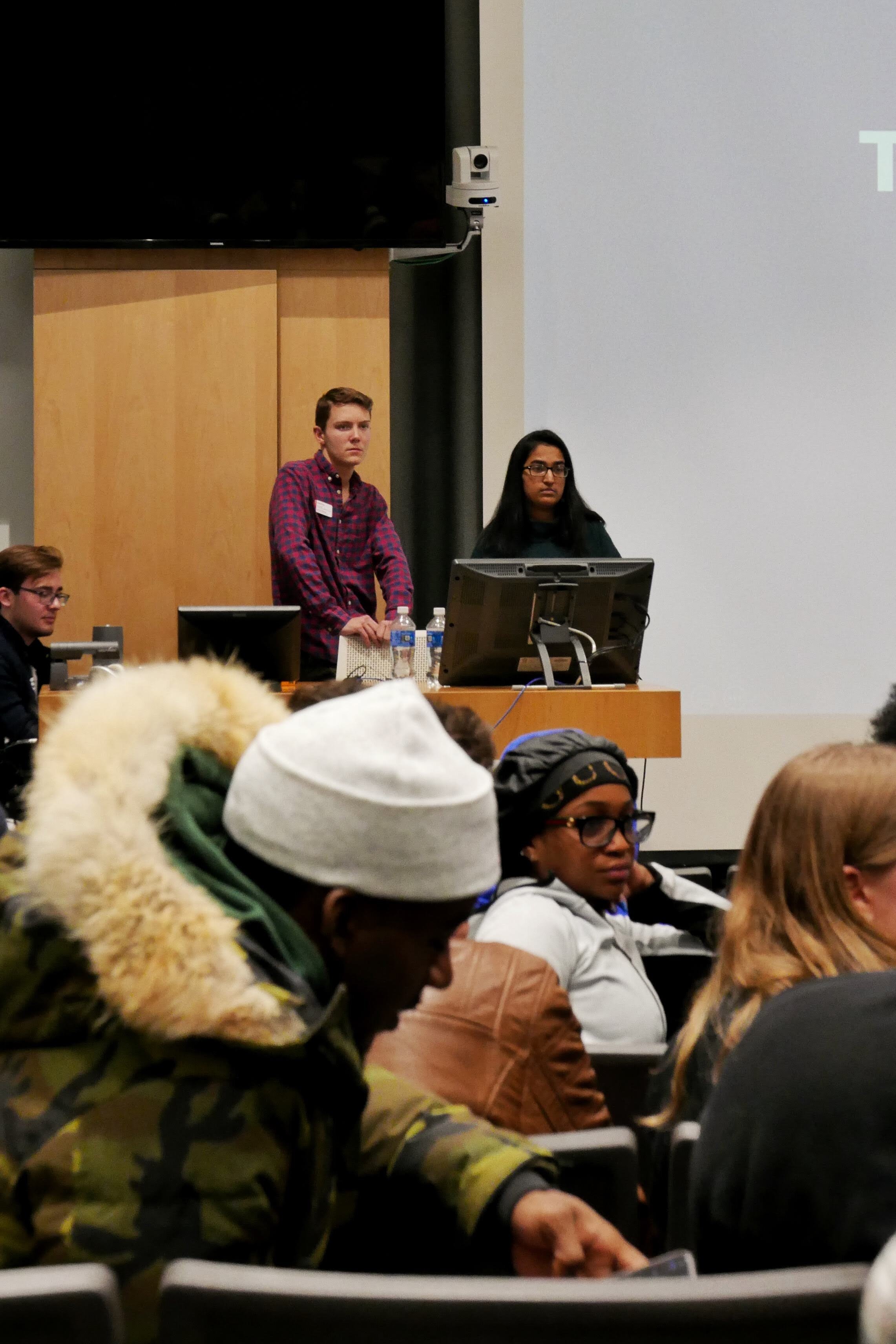
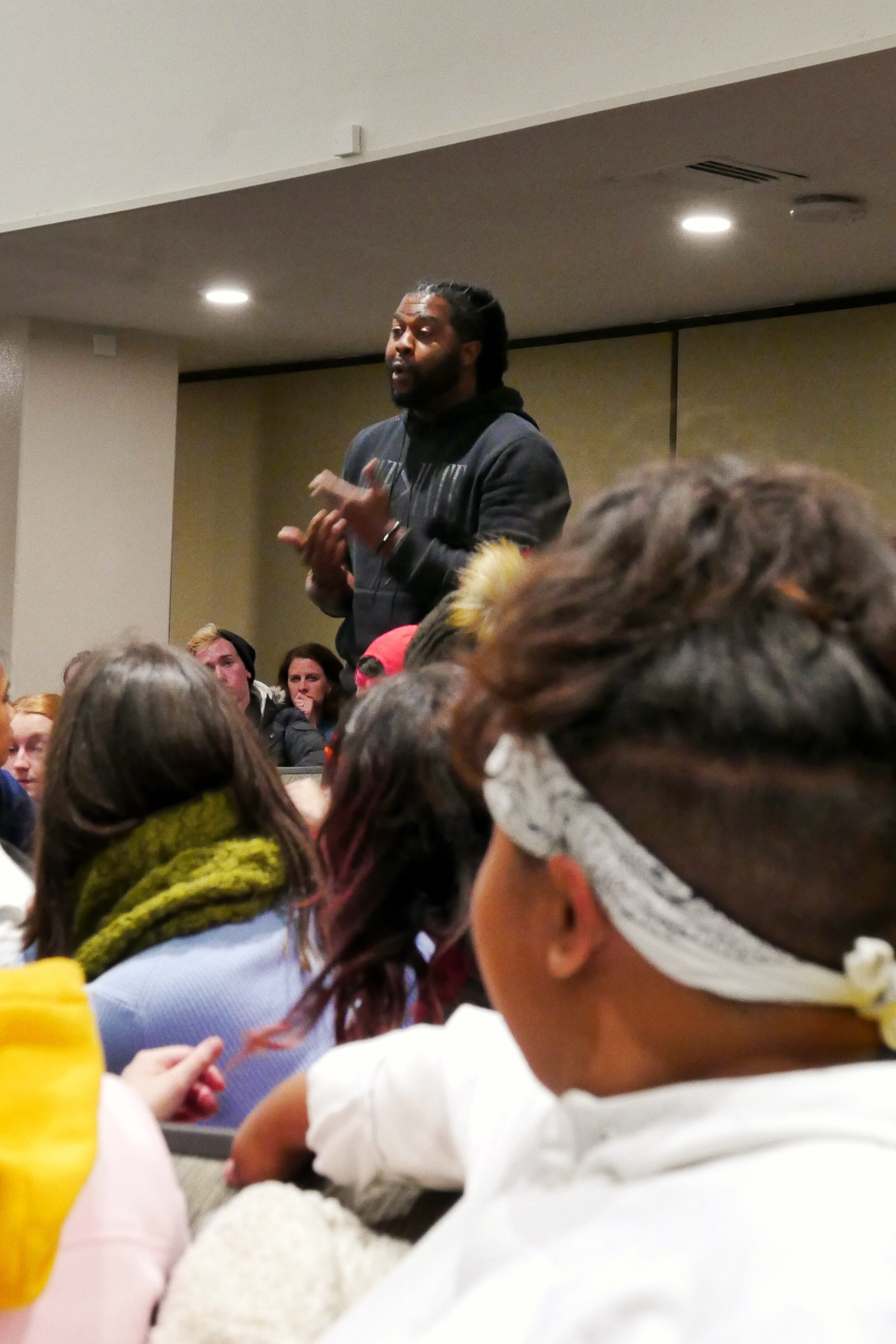
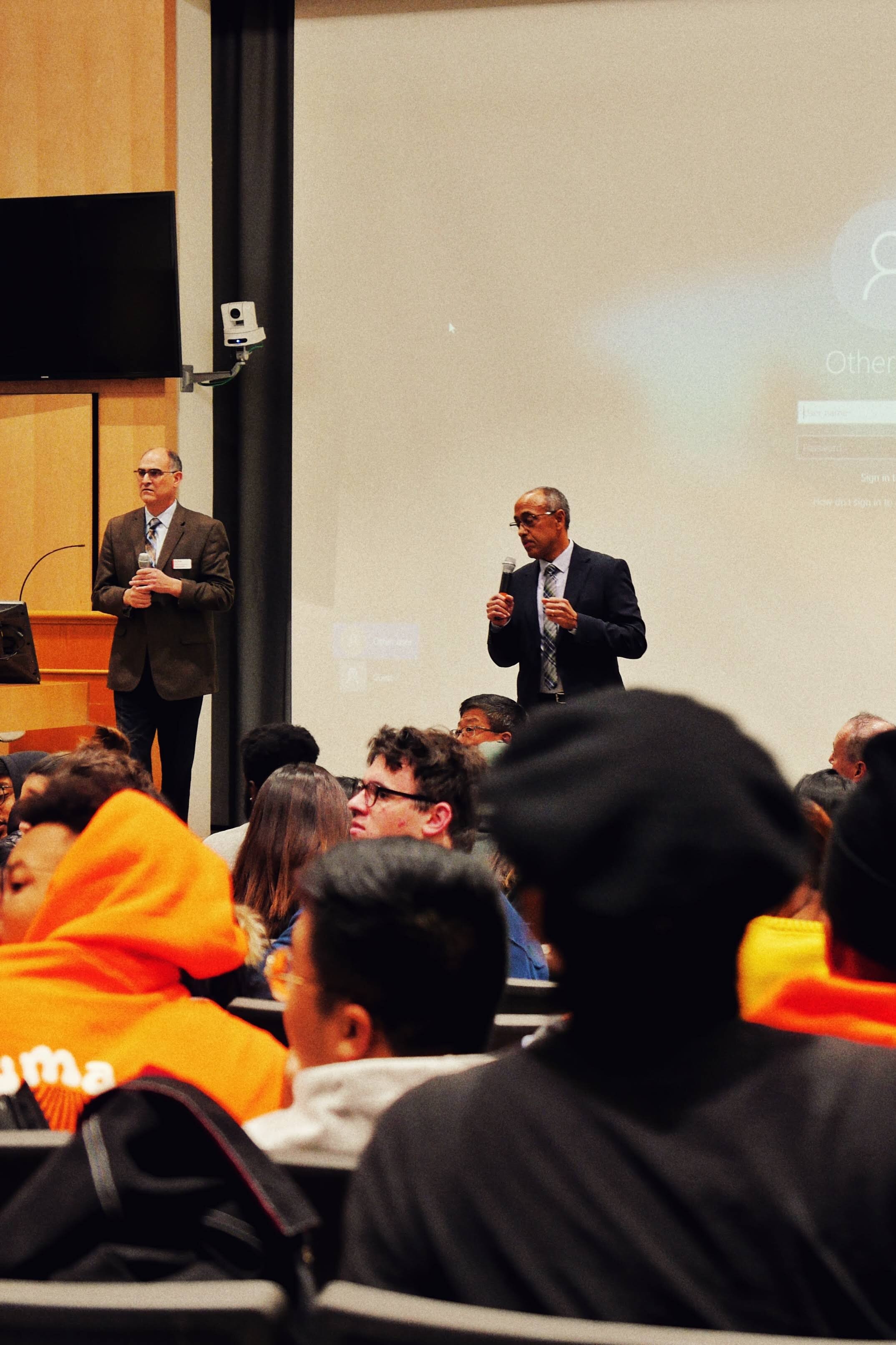
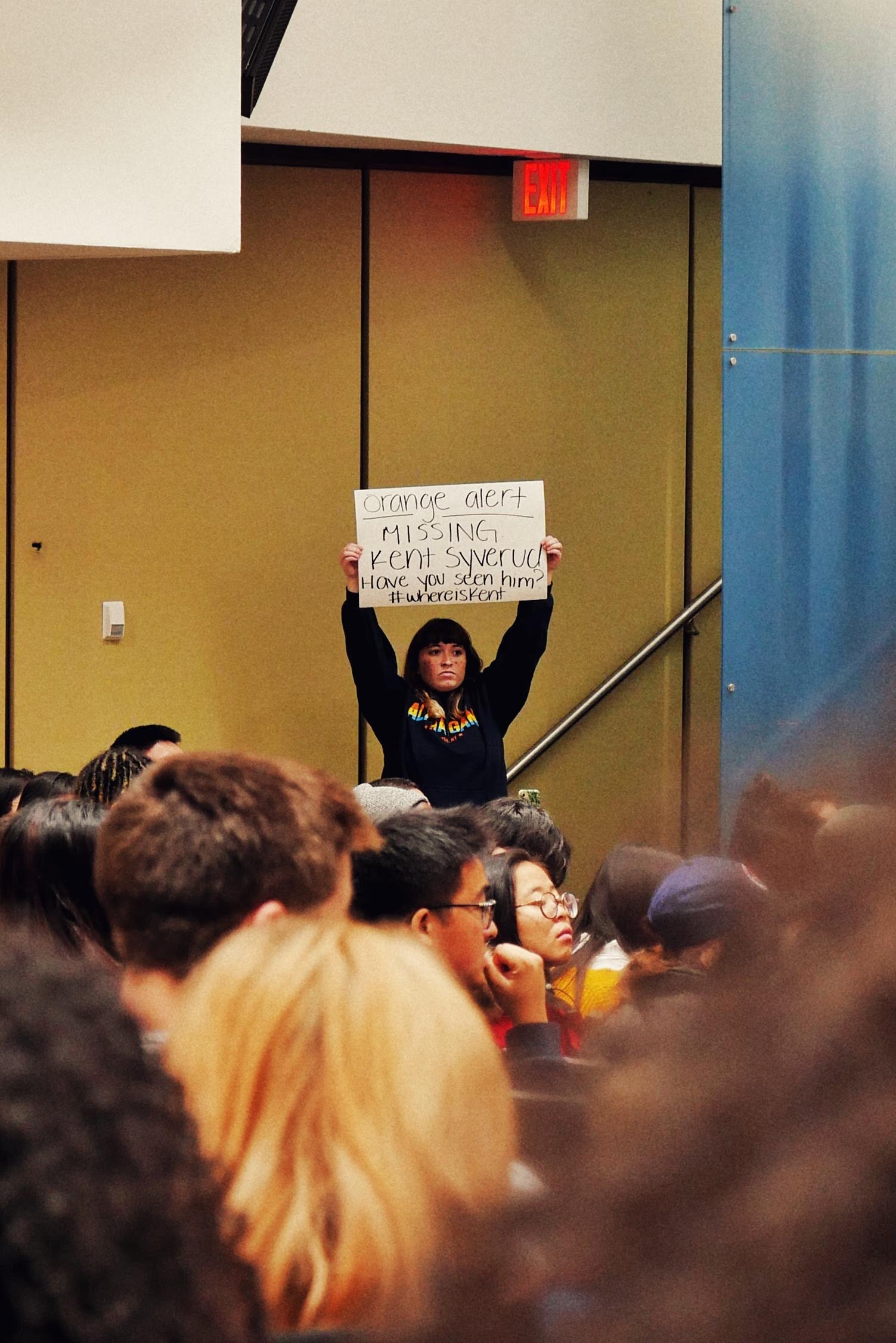
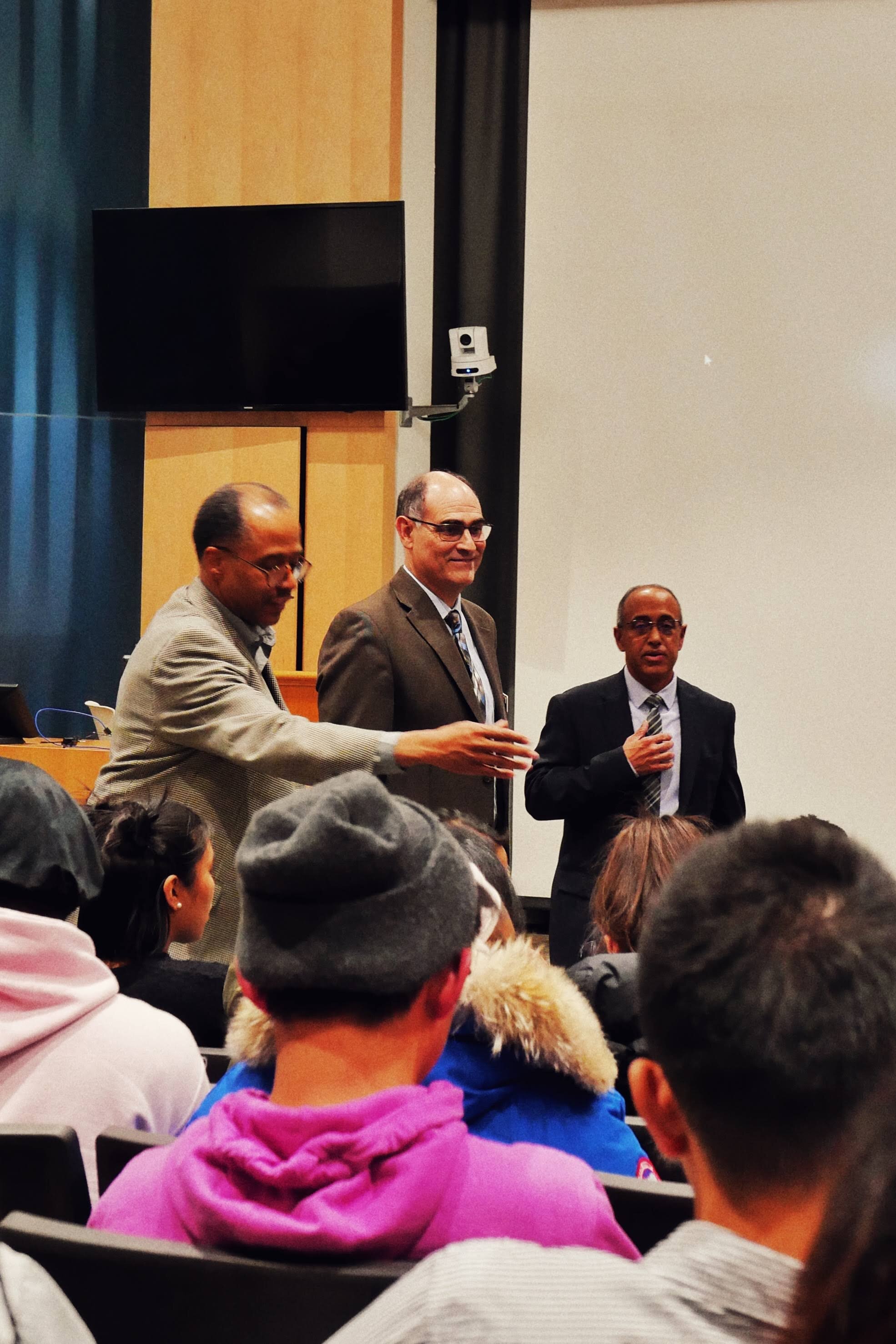
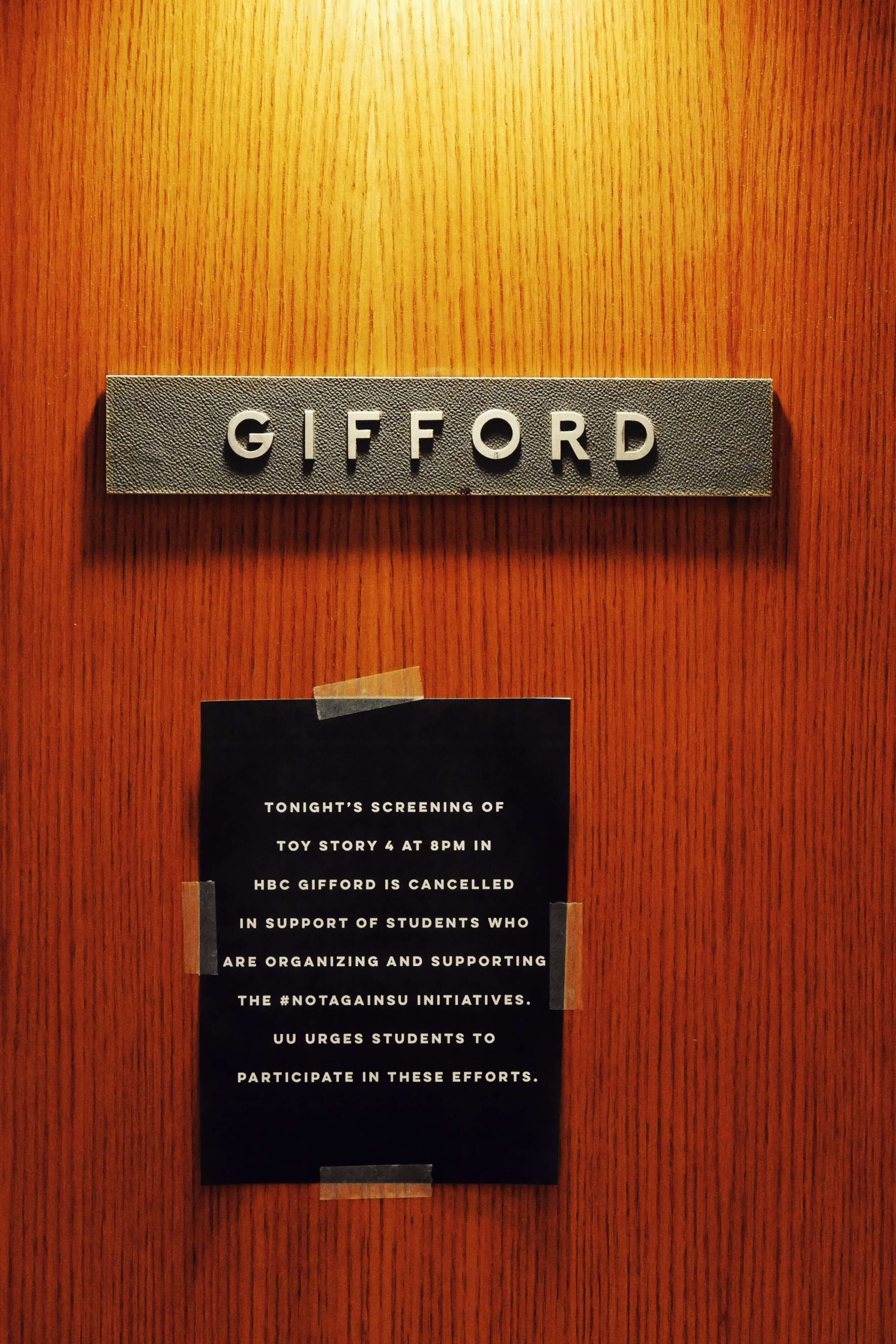
photos by taylor knight

